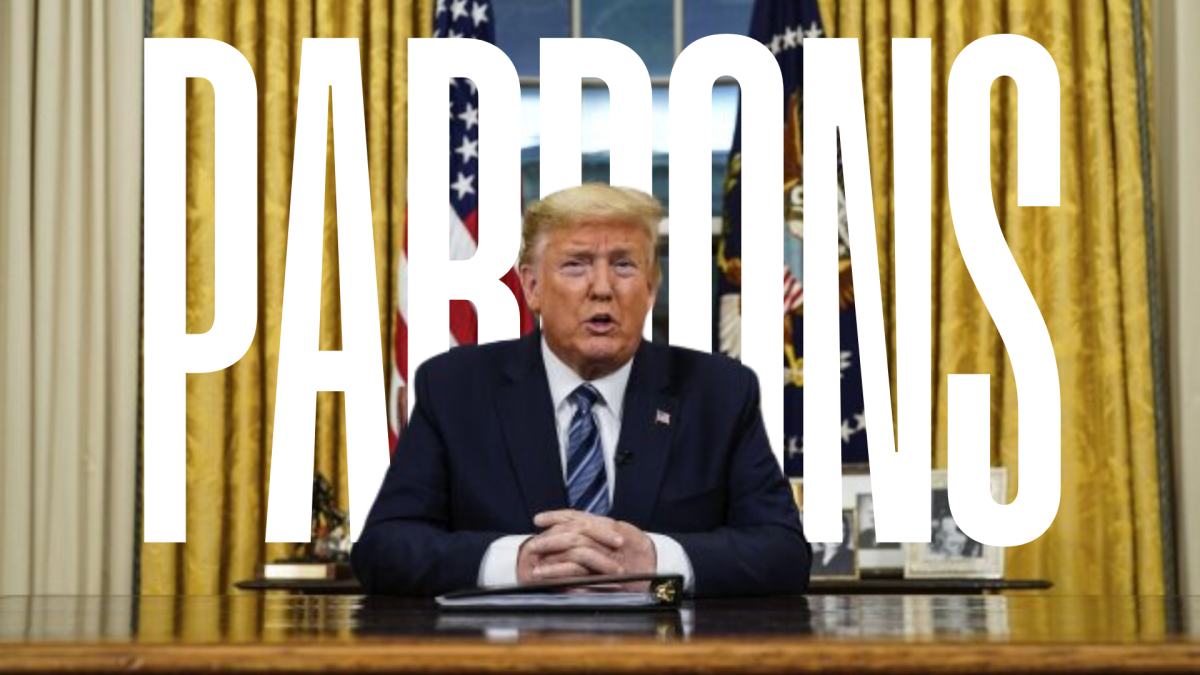Once a tool for mercy and justice, the presidential pardon has become a bit like a get-out-of-jail-free card in a high-stakes political game. What was meant to serve the public good — offering second chances and tempering the harshness of the law — has, in recent years, become a high-profile, often controversial, weapon in the hands of those who seek to protect their own interests. As both Presidents Joseph Biden and Donald Trump have demonstrated, the pardon power can be used to absolve not only the guilty but also the politically advantageous, leading many to ask: Is this a constitutional safeguard or a loophole in need of a fix?
The power to grant pardons lives in Article II, Section 2 of the U.S. Constitution. According to the Supreme Court, a pardon is an “act of grace,” meant to be exercised by a trusted executive in order to improve “public welfare.” Seemingly, the intent behind this power was to offer mercy, correct injustices and serve the common good. The idea was never to grant the president unchecked discretion but instead serve as a compassionate mechanism to rectify harsh sentences or cases of wrongful conviction. However, from high-profile pardons of political allies to controversial commutations, the scope of executive clemency has sparked debates about its limits and potential for abuse.
For example, former President Biden ended his term with a series of controversial pardons. During the summer of 2024, his son, Hunter Biden, faced legal trouble of his own, standing trial on federal gun and drug charges. Biden made it clear early on that he would not use his pardon power to shield his son from the consequences of the legal system, yet despite his initial assurances, he ultimately issued an unconditional pardon for Hunter in Dec. 2024, citing fairness and his son’s rehabilitation efforts. The pardon was justified by Biden’s claims that the crimes Hunter was being accused of were rarely prosecuted against first-time offenders working towards sobriety. Regardless of whether or not this is true, Biden’s pardon clearly exceeded the ethical boundaries of executive clemency. Most evidently, if we were to ask ourselves whether other people prosecuted for this same crime also receive the privilege of a presidential pardon, the answer would clearly be no. While familial ties are inevitable in personal decision-making, the use of presidential power to absolve a close relative raises serious ethical concerns. Is the Oval Office really an appropriate setting for father-son nepotism? Overall, the pardoning of Hunter Biden highlights a system in which power and privilege can be leveraged to shield those with connections to the highest offices.
Similarly, President Trump entered presidential office earlier this year with a series of his own controversial presidential pardons. Within just two weeks of being sworn into office for his second term, Trump issued a plethora of pardons, many of which were granted to his political allies, including individuals involved in the Jan. 6 Capitol insurrection. In an extraordinary move, Trump pardoned or commuted the sentences of over 1,500 people, including those convicted of serious crimes such as seditious conspiracy and assaulting law enforcement officers during the Capitol riot. Notably, Stewart Rhodes and Enrique Tarrio, two high-profile figures in the insurrection, were both among those granted clemency. Both Rhodes and Tarrio were charged with severe crimes, including seditious conspiracy and orchestrating violent riots. Supporters of Trump immediately celebrated these pardons as a victory against what they viewed as a “biased” justice system. However, these actions sent a disturbing message about the value of law and order in the United States. By granting clemency to individuals who called for a violent overthrow of the government, Trump not only undermined the integrity of the justice system but also set a dangerous precedent for future administrations. The message was clear: unlawful actions, particularly those carried out by political or ideological allies, could be forgiven if the right people are in power, further eroding public trust in the fairness and impartiality of the judicial process. In the future, this could embolden other individuals or groups to challenge the rule of law, knowing that their actions may not have lasting consequences if they maintain political connections.
Thus, the presidential pardon seems like an unchecked and dangerous power, easily used in ways that compromise our American democracy and principles of justice. Constitutionally, the check for a pardon is impeachment, which provides a method of addressing abuse of power. However, the practical application of impeachment as a check on presidential pardons is problematic. Impeachment requires significant political consensus and is often deeply influenced by partisan interests, making it difficult to pursue effectively, especially when the president has substantial support within their party. This means that even in the face of clear abuses of power, the system may fail to hold a president accountable in a timely or meaningful way. In the end, the presidential pardon, once a noble tool of mercy, risks becoming a dangerous weapon that erodes trust in our democratic institutions. Without meaningful reforms, this unchecked power could continue to undermine the very principles of justice it was meant to uphold.
Laila Sayegh, FCRH ’27, is a political science major from Congers, N.Y.










































































































































































































